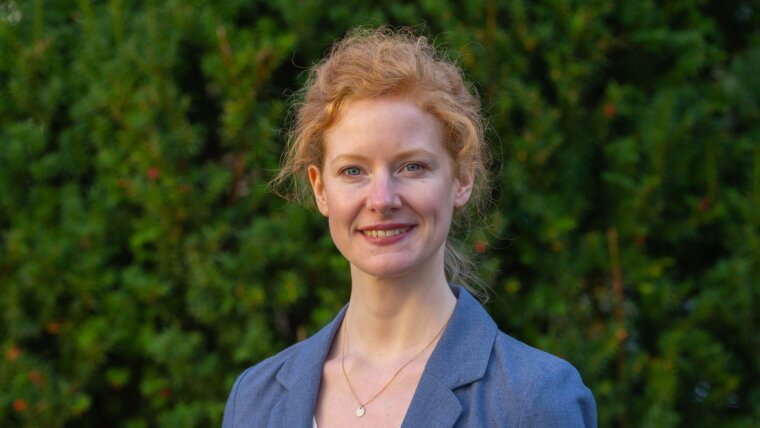
By Sebastian Hollstein
Dr Annika Bartsch explains the starting point of Romantic thought: »Romantics are driven by the longing for a supreme principle which underpins everything—but which is out of human reach. It is beyond our comprehension and perception. We are left with the feeling of a void, an existential lack. This sets in motion the permanent search of the Romantics«. As part of her doctoral thesis, she investigated the way in which this is addressed and expanded in contemporary German literature.
»Even today’s authors repeatedly refer to the ideas that emerged 200 years ago, often in relation to social upheavals,« says the literary scholar. »This reference to the Romanticism model has been booming again, especially since the start of the 21st century«. Society is becoming more diverse. Areas such as culture, media and science each have their own set of values for the individual. The strong particularization and fragmentation of society, compounded by an emphasis on individual freedoms, is raising more questions than answers.
In this state of disorientation, in which parallels can be drawn to the situation around 1800, when earlier explanatory models were supplanted, inter alia, by the Enlightenment, Romanticism may offer a way out. Because then we do not have to permanently make decisions as individuals—such as in our career paths or in the supermarket—but experience fulfilling moments of unity in our insatiable search for a supreme principle. For example, we can experience this in nature when bathing in the woods or simply watching the sunset.
This model is encapsulated by one of the most widely read books in Germany in recent decades: »Why We Took the Car« by Wolfgang Herrndorf. In addition to works by Felicitas Hoppe, Helmut Krausser and Hans-Ulrich Treichel, Annika Bartsch analysed Herrndorf’s coming-of-age novel, published in 2010, as part of her doctoral thesis, where she presented how much the narrative is imbued with Romantic ideas. »Two boys embark on a journey into the unknown and are confronted with the mystery of growing up—there are clear Romantic references there,« summarizes the doctor of German studies, who wrote an essay on the book entitled »Zwei ›Taugenichtse‹ im geklauten Lada« (»Two ›Good-for-Nothings‹ in a Stolen Lada«), with the title referring to Joseph von Eichendorff. The structure of such a journey has always created an environment in which, not least, natural phenomena such as the spectacle of a starry sky allow us to experience a deep longing for the supreme principle.
This longing for the Absolute continues to be expressed in contemporary literature through the use of literary means that were employed by Romantic writers around 1800. If, for example, a clear statement is refused through the use of irony, thus juxtaposing an assertion and retraction, this creates a state of limbo. »When the two heroes in ›Why We Took the Car‹ gaze at ›the stars with their incomprehensible infinity‹ and wonder whether there is something up above, the choice of words in the text—and the emotions experienced by the young boys—creates the impression of a greater meaning. However, the scene is ironically broken off because their ponderings about this certain something actually arise from their fanciful imagination of insects on other planets. In other words, an absolute principle is neither explicitly accepted nor refuted—instead, the text reinforces the sphere of possibilities, the feeling of emotion experienced by the boys at that moment,« says Bartsch. »Felicitas Hoppe even makes this state of limbo the leitmotiv of her novel ›Paradiese, Übersee‹«.
»Writers are not necessarily aware of the fact that they are using Romantic ideas and means in their works. Romanticism is a model that is so deeply rooted in contemporary culture that we can all unwittingly draw on such ideas—even if we have do not call this romantic,« says Annika Bartsch. »Herrndorf’s texts can be described as Romantic, even though the historical movement is not explicitly named or referenced in his works. Helmut Krausser, on the other hand, makes a Romanticism researcher the hero in his novel ›Thanatos‹,« explains Annika Bartsch. »However, the different forms of representation show that Romanticism, as a way of understanding oneself and the world, is interesting for the individual to deal with experiences of particularity on the one hand and the longing for a greater meaning on the other—200 years ago as it is today«.